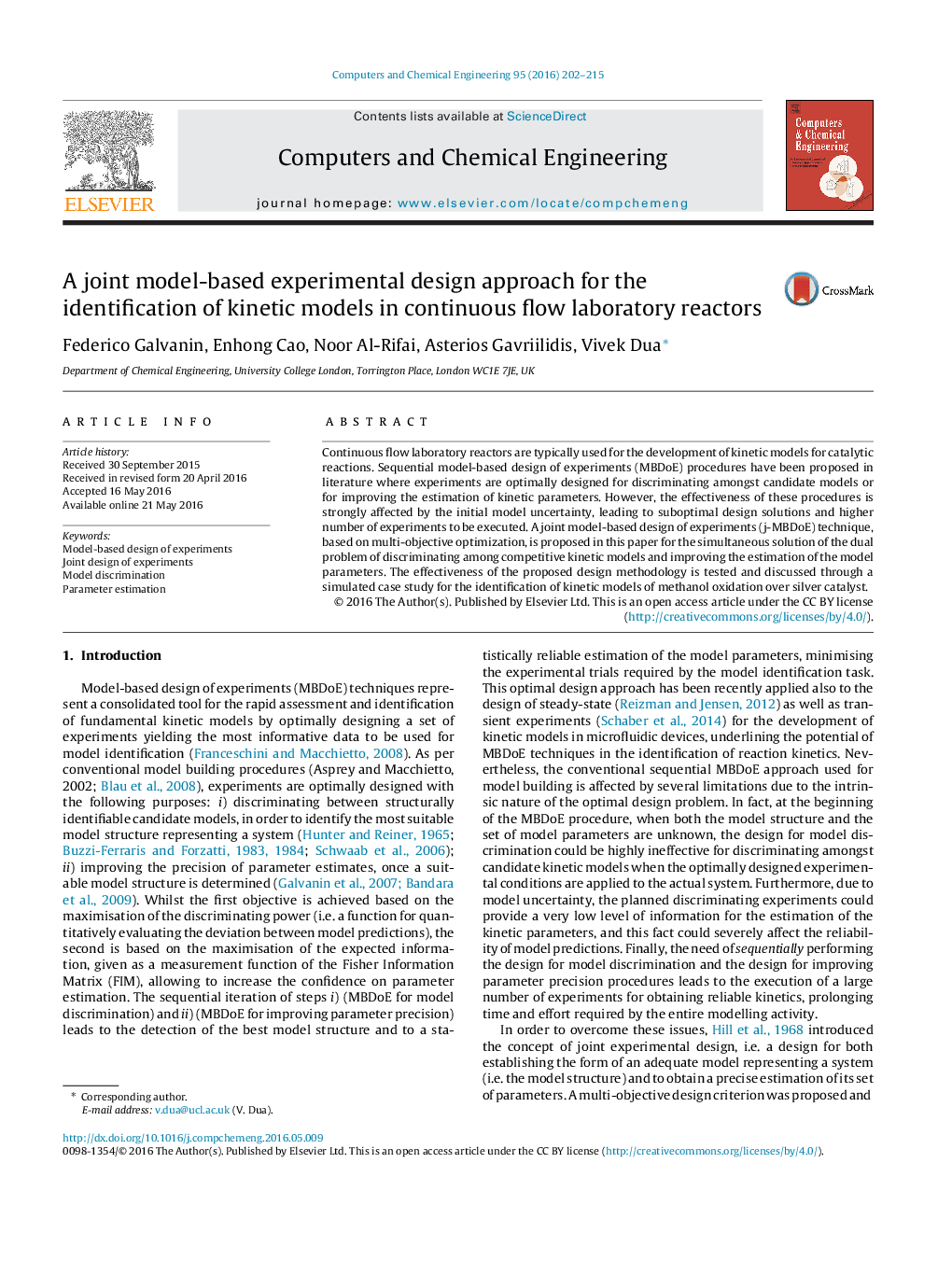| Article ID | Journal | Published Year | Pages | File Type |
|---|---|---|---|---|
| 6469303 | Computers & Chemical Engineering | 2016 | 14 Pages |
â¢A multi-objective optimisation framework for model-based design of experiments is presented.â¢The framework is tested on a microreactor platform.â¢Model discrimination and improvement in kinetic parameter estimation are simultaneously achieved.
Continuous flow laboratory reactors are typically used for the development of kinetic models for catalytic reactions. Sequential model-based design of experiments (MBDoE) procedures have been proposed in literature where experiments are optimally designed for discriminating amongst candidate models or for improving the estimation of kinetic parameters. However, the effectiveness of these procedures is strongly affected by the initial model uncertainty, leading to suboptimal design solutions and higher number of experiments to be executed. A joint model-based design of experiments (j-MBDoE) technique, based on multi-objective optimization, is proposed in this paper for the simultaneous solution of the dual problem of discriminating among competitive kinetic models and improving the estimation of the model parameters. The effectiveness of the proposed design methodology is tested and discussed through a simulated case study for the identification of kinetic models of methanol oxidation over silver catalyst.
